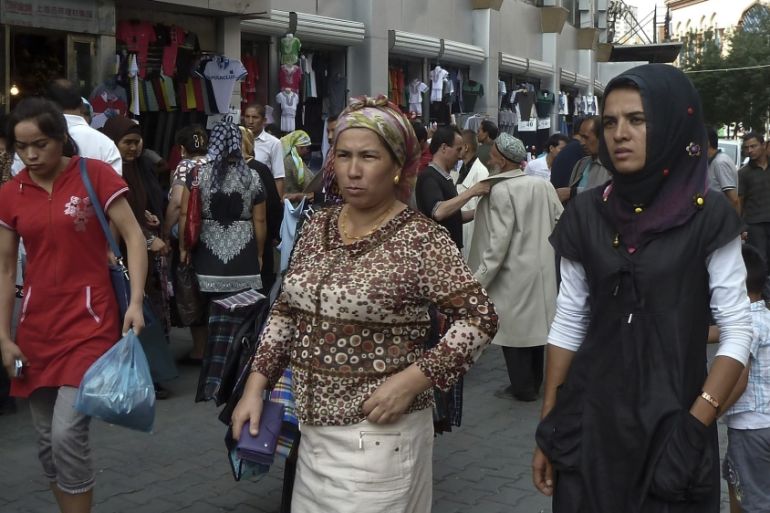HRW: China using mobile app for surveillance of Uighurs
App collects personal information and prompts officials to file reports about people and their behaviour, HRW says.

Chinese police are using a mobile app to store data on 13 million ethnic minority Uighurs and other Turkic Muslims in Xinjiang province, a Human Rights Watch (HRW) report has revealed.
The app, known as the Integrated Joint Operations Platform, is being used to store information from the height and weight of individuals to facial recognition scans.
Keep reading
list of 4 itemsChina sanctions US-based Xinjiang monitor
‘Cruel tragedy’: Uighur scholar sentenced to life in prison in China
Xi Jinping calls for protection of ‘hard-won stability’ in Xinjiang visit
The report, released on Thursday, added that Xinjiang authorities closely watch 36 categories of behaviour, including those who do not socialise with neighbours, often avoid using the front door, don’t use a smartphone, donate to mosques “enthusiastically”, and use an “abnormal” amount of electricity.
“The goal is apparently to identify patterns of, and predict, the everyday life and resistance of its population, and, ultimately, to engineer and control reality,” HRW said in the report.
The rights watchdog worked with German security firm Cure53 to reverse engineer the app in late 2018 to provide “an unprecedented window into how mass surveillance actually works in Xinjiang”.
Along with collecting personal information, the app prompts officials to file reports about people, vehicles and events they find suspect, and sends out “investigative missions” for police to follow up.
Officers are also asked to check whether suspects use any of the 51 internet tools that are deemed suspicious, including messaging platforms popular outside China like WhatsApp, LINE and Telegram.
A number of people said they or their family members have been detained for having WhatsApp or a Virtual Private Network (VPN) installed on their phones during checks by authorities, according to the report.
|
|
China has led an increasingly repressive campaign in Xinjiang following a series of knife attacks and ethnic riots over the past 10 years.
It has come under international criticism over its policies in the northwest region where as many as one million Uighurs and other minorities, mostly Muslim, are being held in internment camps, according to a group of experts cited by the United Nations.
China claims the camps are vocational training centres.
Many are also forced to host government monitors in their own homes and undergo other forms of regular surveillance.
HRW said Beijing has already collected “DNA samples, fingerprints, iris scans and blood types of all residents between the age of 12 and 65” as well as voice samples.
“Psychologically, the more people are sure that their actions are monitored and that they, at anytime, can be judged for moving outside of a safe grey-space, the more likely they are to do everything to avoid coming close to crossing a moving red line,” Samantha Hoffman, an analyst at the Australian Strategic Policy Institute’s International Cyber Policy Centre, told AFP news agency.
“There is no rule of law in China, the party ultimately decides what is legal and illegal behaviour, and it doesn’t have to be written down.”